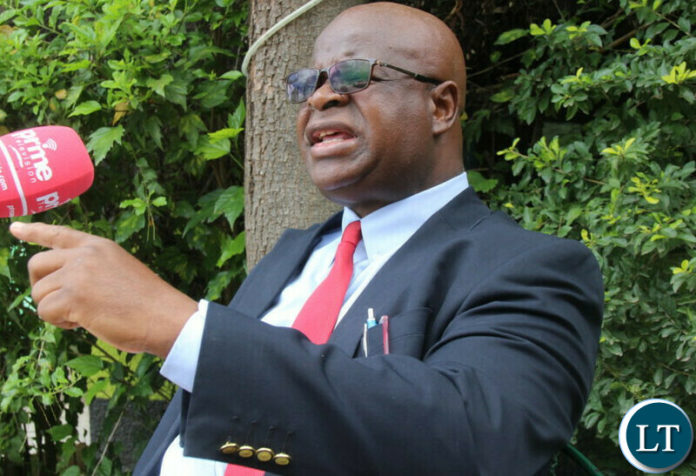Zambian Government Confronts Health Sector Tensions as Doctors Demand Action
By Lawrence Haachipuka
Lusaka, Zambia – Mounting frustration over poor working conditions and delayed payments has triggered an emergency response from the Ministry of Health, as government officials scramble to pacify unrest within the medical fraternity.
On Monday, the Ministry of Health announced it had convened an urgent meeting with the Resident Doctors Association of Zambia (RDAZ) in a bid to address escalating grievances among medical professionals. The move follows a public outcry by RDAZ over continued delays in the formal employment of medical doctors and what the association has described as a “steady decline in workplace dignity.”
Minister of Health Dr. Elijah Muchima, while acknowledging the legitimacy of the complaints, expressed concern over the association’s decision to air its frustrations through the media. “These matters are best resolved through engagement, not public spectacle,” Dr. Muchima stated during a press briefing. He emphasized that ongoing fiscal constraints remain the primary bottleneck in resolving the employment backlog and improving remuneration packages.But for many doctors, patience is wearing thin.
According to RDAZ insiders, over 800 trained doctors have remained unemployed for months, despite having completed their mandatory internships and passing licensure requirements. Hospitals are also said to be experiencing shortages of basic supplies and medical personnel, adding to the burden of already stretched healthcare staff.
“We are not demanding luxuries. We are simply asking for the conditions that allow us to save lives without risking our own health or falling into financial ruin,” said one Lusaka-based doctor who asked to remain anonymous for fear of professional backlash.
Health sector unions and civil society organisations have begun rallying in solidarity with the doctors, warning that failure to address systemic failures could lead to broader disruptions in public health services, especially as the country braces for potential disease outbreaks during the rainy season.
Economist and public policy expert Dr. Nchimunya Malama believes the standoff reflects a deeper crisis. “We’re seeing symptoms of long-term underinvestment in healthcare infrastructure and human resources. The crisis is not just financial, it’s structural.”
The situation has reignited debate over the government’s budgetary priorities. While Zambia’s 2025 national budget increased allocations to health by 14%, critics argue that the disbursement of funds remains sluggish, often hindered by bureaucratic red tape or misallocated due to weak oversight mechanisms.
Dr. Muchima maintains that the government remains committed to improving the sector. “We will continue to hire and improve conditions, but this must be done within the framework of our economic recovery plan,” he said, referring to the country’s ongoing efforts to manage external debt and streamline public expenditure.
Meanwhile, the Ministry has invited the RDAZ to the negotiating table with promises of dialogue, though no timeline for action has been publicly announced.
Observers warn that if concrete progress is not achieved swiftly, Zambia risks not only a health workforce exodus but also a collapse of morale among front-line staff. This scenario could have long-term repercussions for national development.
As the government and doctors prepare to meet behind closed doors, the nation watches closely. At stake is not only the future of medical professionals but the integrity of Zambia’s healthcare system itself.



On one hand we have no funds to employ these doctors who are ready to start work.
But on the other we have funds for by elections
And constitution amendment?
We misuse so much money on cash for work, social cash transfer and subsidies. And even want to increase MPs.
On the othsr hand in 2003, 23 doctors would graduate.
Now we graduate 1000+ Drs a year. The quality of graduating students is terrible.
We need to find a balance.
Motor rich talk is different from peasants talk. When the rich say they are broke it means they have no money for a certain brand of whisky but they have money for three meals a day for a family of 7. And they will drink cheaper wine at dinner.
We poor when we say we are broke that means we have no mealie Meal, no Colgate, no bath soap no kapenta, no malasha, no bus ticket money, no ngwee in the wallet Perhaps no house!
2026
We currently have no deputy ministers for the same reason, to cut costs.
Alas, we hope to increase MPs by another hundred figure! Is it true that Zambia can only develop with CDF? What has the increased allocation of Funds shown for the past four years? As debt burdened as we are, we still want to remain spendthrifts. Owing to our meager resources, a lean but effective parliament and GRZ is all we ever need.
And why must Parliament be dissolved a day prior to general elections? Don’t we need to save that money?
The Civil Service has been weaponised for politics. It is being used to pick up all unemployed-even without skills-party cadres who are now doing nothing in government offices. Things that will drown HH when IMF gets angry-pretty soon
You have money to create new constituencies, increase number of MPs to over 200 who nothing but talk, pay their allowances, their upkeep at parliament motel, free food and drinks including expensive whiskeys, pay them gratuity more than K5 million each, buy them latest landcruiser vx but no money to employ life saving medical staff or life saving drugs and equipment.
Comments are closed.